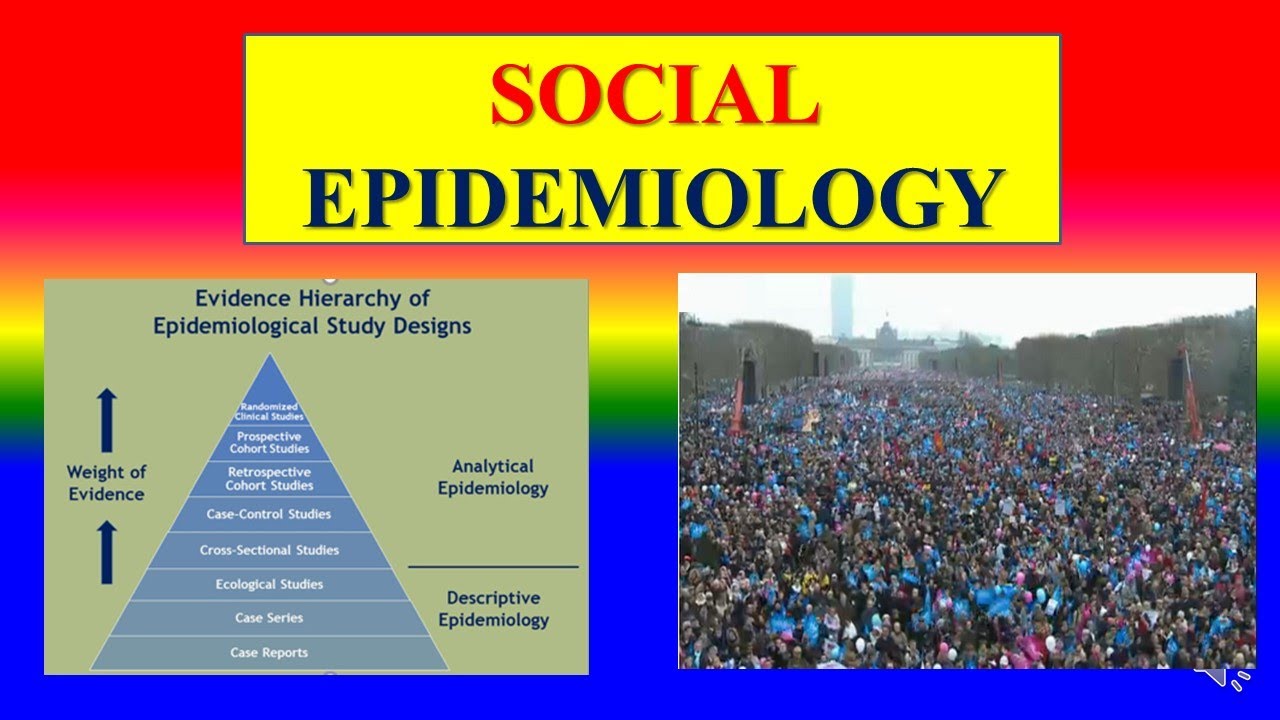Why Social Science Expertise Elevates Epidemiology: Practical Benefits, Guidance, and Real-World Impact

Introduction: The Power of Social Science in Epidemiology
Epidemiologists are at the frontline of safeguarding public health, tasked with investigating the causes and patterns of disease and injury. Traditionally, their work has centered on biomedical data, statistical models, and surveillance. However, in an increasingly complex world, understanding social science has become crucial for epidemiologists who aim to deliver effective, equitable, and sustainable health interventions. Social science provides essential insights into how cultural, economic, political, and psychological factors shape health outcomes, behaviors, and the success of public health programs [1] .
Why Social Science Matters for Epidemiologists
Integrating social science into epidemiology means looking beyond biological mechanisms and considering how communities experience, interpret, and respond to disease. This approach humanizes epidemic response and ensures interventions account for local realities [1] .
Understanding social science helps epidemiologists to:
- Identify the deeper causes of disease patterns, including social determinants such as poverty, education, housing, and discrimination [4] .
- Design interventions that resonate with community values, beliefs, and practices.
- Communicate risk and prevention strategies effectively to diverse populations.
- Engage communities as active partners in health programs, rather than passive recipients.
Exploring Social Determinants of Health: Data, Methods, and Impact
Social science equips epidemiologists to analyze the social determinants of health-factors like income, education, environment, and social support-that shape health outcomes across populations. For example, research might reveal that low-income communities have higher rates of a particular disease not just due to genetics or pathogens, but because of barriers to healthcare access or exposure to environmental toxins [2] .
Implementation Guidance:

Source: clipart-library.com
- Collect and analyze data through surveys, interviews, and community engagement activities to understand local contexts.
- Partner with social scientists to interpret findings and develop culturally appropriate interventions.
- Use findings to advocate for policy changes that address underlying social inequities.
For example, an epidemiologist studying diabetes prevalence may work with social scientists to identify how food deserts and cultural dietary preferences influence outcomes. Interventions could then focus on improving healthy food access and providing nutrition education tailored to community norms.
Enhancing Behavioral Change Strategies
Behavioral science, a key branch of social science, examines the motivations behind health-related behaviors such as vaccination uptake, exercise, substance use, and adherence to medical advice. Epidemiologists who understand behavioral theories can craft interventions that are more likely to succeed because they align with how people actually think and act [2] .
Real-World Example: During the COVID-19 pandemic, some communities resisted public health guidance due to mistrust or misinformation. Epidemiologists applied social science insights to develop targeted risk communication and community engagement campaigns, improving compliance and outcomes.
Step-by-Step Implementation:
- Assess local beliefs and barriers through focus groups and surveys.
- Develop messages that reflect community values and address specific concerns.
- Engage trusted local leaders or organizations to deliver messages.
- Continuously evaluate and adapt strategies based on community feedback.
Potential challenges include resistance to change and limited trust in authorities. Solutions involve building long-term relationships and leveraging existing social networks for message dissemination.

Source: depositphotos.com
Informing Policy and Resource Allocation
Epidemiologists use social science data to inform public health policy and optimize resource allocation. By identifying high-risk populations and the social factors driving vulnerability, they can recommend targeted policies and efficient use of limited resources [2] .
For instance, data on housing instability and health outcomes can guide decisions on funding for housing support programs as part of disease prevention strategies.
Accessing Support and Opportunities:
If you are an epidemiologist seeking to build your social science expertise, consider these pathways:
- Pursue continuing education courses or workshops in social epidemiology or behavioral science. Many universities and professional organizations offer online programs.
- Collaborate with social scientists on research projects to gain practical experience.
- Engage with professional societies such as the Society for Epidemiologic Research or the American Public Health Association , which frequently host sessions on social determinants of health and interdisciplinary methods.
When seeking specific resources, you may search for terms like “social epidemiology training,” “community engagement in public health,” or “behavioral health intervention workshops” to find relevant programs and opportunities.
Case Studies: Integrating Social Science in Epidemiology
Historical and recent examples underscore the value of social science in epidemiological practice. For example:
- During the Ebola outbreak in West Africa, epidemiologists who worked closely with anthropologists developed culturally sensitive burial practices, which helped reduce transmission while respecting local customs [1] .
- In mental health epidemiology, understanding social stressors and support networks has led to more comprehensive prevention and treatment strategies [3] .
- Social epidemiology has uncovered how neighborhood environments, social isolation, and economic policies affect chronic disease rates and life expectancy [4] .
These examples illustrate that social science is not a peripheral concern but central to effective, ethical, and sustainable epidemiological practice.
Practical Steps for Epidemiologists: Building Social Science Competence
To leverage social science effectively, epidemiologists can:
- Seek Interdisciplinary Training: Enroll in courses or workshops on social determinants of health, community-based research, or behavioral change theory. Many universities and professional organizations offer relevant programs; search their official websites or contact their admissions departments for details.
- Build Collaborative Networks: Partner with social scientists, anthropologists, or behavioral health experts in research and program design. Consider reaching out through academic departments or professional conferences.
- Apply Mixed Methods Research: Combine quantitative (e.g., statistical surveys, epidemiological surveillance) and qualitative (e.g., interviews, ethnography) approaches for a holistic understanding of health issues.
- Engage Communities: Involve community members in needs assessments, program development, and evaluation. This can improve trust, relevance, and uptake of public health interventions.
-
Stay Informed:
Subscribe to journals such as
Social Science & Medicine
or
Globalization and Health
for current research at the intersection of social science and epidemiology.
Potential Challenges and Solutions
Integrating social science into epidemiology is not without challenges. These may include limited cross-disciplinary training, resistance within organizations, or lack of funding for qualitative research. Solutions involve advocating for the value of social science within public health agencies, pursuing grants that support interdisciplinary studies, and demonstrating the effectiveness of integrated approaches through pilot projects and case studies [1] .
Alternative approaches, such as community-based participatory research or co-designing interventions with affected populations, can help overcome barriers and lead to more impactful results.
Summary and Key Takeaways
An understanding of social science is a powerful asset for epidemiologists. It enables them to address the complex, interconnected factors that shape public health, design interventions that work in real-world contexts, and build trust with the communities they serve. By investing in social science skills and partnerships, epidemiologists can maximize their impact-improving health outcomes and advancing health equity.
References
- [1] Globalization and Health (2020). Integrating the social sciences in epidemic preparedness and response.
- [2] Number Analytics (2025). Epidemiology in Social Sciences: Principles, Methods, and Uses.
- [3] PMC (1959). Epidemiology in the Social Sciences.
- [4] PMC (2004). Social epidemiology: Definition, history, and research examples.






